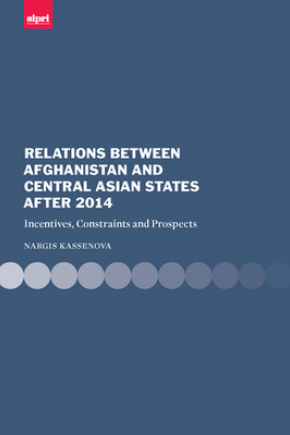Relations between Afghanistan and Central Asian States after 2014: Incentives, Constraints and Prospects
All Central Asian states are concerned about the potential spillover of insecurity from Afghanistan. The impending withdrawal of international forces is seen as potentially leading to destabilization, with negative consequences for the region. This report explores the commonalities and differences in the policies of Central Asian states toward Afghanistan. The author argues that the Soviet-era isolation of Central Asian states from their traditional neighbours has been broken, and that opportunities for business, educational and people-to-people links will only increase.
This paper is published under the Wider Central Asia Initiative, a two-year SIPRI project to promote and facilitate dialogue among the main external stakeholders in Afghanistan's future. The initiative is funded by the Swedish Ministry for Foreign Affairs.
1. Introduction
2. Afghanistan and the Central Asian states since 1992
3. Central Asian perspectives on the future security of Afghanistan
4. Cooperation among Central Asian states
5. Initiatives on Afghanistan proposed by Central Asian states
6. Conclusions

